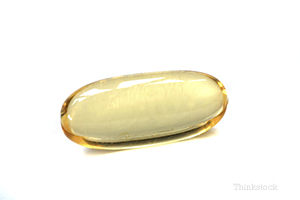
Fish oil is certainly a popular supplement these days for health conscious people. There are many proven benefits, and we now know that many of these same benefits also apply to our canine companions.
What is fish oil?
As the name implies, fish oil is derived from marine animals and is a rich source of omega-3 fatty acids. Animals cannot manufacture these fatty acids on their own -- they must be consumed in the diet. For this reason they are often referred to as “essential fatty acids.”
Mackerel, tuna, salmon, sturgeon, mullet, bluefish, anchovies, sardines, herring, trout and menhaden are all loaded to the gills (pun intended) with omega-3, and are common sources of fish oil supplements. The fatty acids with the greatest health benefits are docosahexaenoic acid (DHA) and eicosapentaenoic acid (EPA). Both are ingredients found on the labels of fish oil supplements.
Five known benefits of fish oil supplementation for dogs
Based on the documented benefits of fish oil, veterinarians, like me, recommend its use as a supplement that provides medicinal benefit (nutraceutical) for the following common canine maladies.
1. Treatment of arthritis
The anti-inflammatory properties of omega-3 fatty acids are responsible for their therapeutic benefit for dogs with arthritis. In a study of 127 dogs with arthritis, those fed a diet supplemented with omega-3 fatty acids showed significant improvement in their abilities to rise from a resting position, play and walk1. Prescription diets made specifically for dogs with arthritis are heavily supplemented with fish oil.
2. Treatment of inflammatory skin disease
Allergic skin disease and other inflammatory skin conditions have the potential to benefit from the anti-inflammatory effects of fish oil. A study was performed on 16 dogs with itchy skin. Compared to the placebo group, those receiving fish oil demonstrated significant improvement (less itching, less self-trauma, and improved hair coat)2.
Another study performed on dogs with varying stages of skin allergies demonstrated that fish oil was more effective for dogs who were in the earliest stages of their skin problems compared to those with more advanced diseases3.
3. Treatment of canine cognitive dysfunction
Canine cognitive dysfunction is a well-recognized syndrome of older dogs that, in many ways, resembles human dementia and Alzheimer’s disease. The omega-3 fatty acid, DHA, has been shown to improve cognitive dysfunction in affected dogs4. Interestingly, DHA appears to slow the progression of human dementia and Alzheimer’s disease too5.
A study was performed on 142 older dogs with a variety of behavioral abnormalities (disorientation, disrupted sleep patterns, altered interactions with family members, altered activity levels and loss of house training). During the 60-day period, dogs fed a DHA-supplemented food showed significant improvement in every one of these behavior categories6.
4. Treatment of heart diseases
Weight loss is a common problem associated with chronic heart failure in dogs. Fish oil has been shown to reduce this profound weight loss7,8. A study was performed on dogs with heart failure, some of who were fed fish oil. The dogs receiving the fish oil supplementation experienced longer survival times and less weight loss compared to those on a fish oil-free diet8.
5. Treatment of kidney disease
Fish oil supplementation has proven benefits in dogs with kidney disease. It is frequently recommended for treatment of glomerular disease, a kidney disorder associated with excessive protein loss in the urine that can worsen chronic kidney disease.
In a study of canine kidney disease with secondary glomerular injury, dietary supplementation with fish oil was shown to significantly slow the progression of the kidney damage9. Additionally, fish oil has been shown to have a protective effect against acute injury to the kidneys10. For this reason, fish oil supplementation is reasonable to consider for any dog with compromised kidney function.
 Fish Oil Precautions
Fish Oil Precautions
Let the buyer beware. Not all over the counter fish oil supplements are created equal. In a study of 51 best-selling fish oil products in the United States, 21 of them varied in their DHA and EPA concentrations by more than 10 percent compared to their label claims11.
Careful attention to the dose of fish oil for a dog is important. Too much fish oil can produce adverse side effects such as diarrhea, blood clotting abnormalities, delayed wound healing, vitamin E deficiency, weight gain and altered immune system function. Lastly, fish oil has the potential to produce problematic interactions with other medications12, particularly nonsteroidal anti-inflammatory medications.
Questions for your veterinarian
Thinking of getting your dog started on a fish oil supplement? Before you do, I encourage you to discuss this idea with your veterinarian. Here are some questions to ask.
• Does my dog have a disorder that might benefit from fish oil supplementation?
• What dose should I give?
• What brand of fish oil do you recommend?
• Is fish oil supplementation compatible with the other medications I am giving my dog?
If you have any questions or concerns, you should always visit or call your veterinarian -- they are your best resource to ensure the health and well-being of your pets.
11. "Top 10 Fish Oil Supplements." LabDoor. Web.
12. C.E. Lenox and J.E. Bauer. Journal of Veterinary Medicine.12033

Dog Kidney Disease Articles
Chronic Kidney Disease: What Does Kidney Failure in Dogs Really Mean?
10 Common Causes of Kidney Disease in Dogs